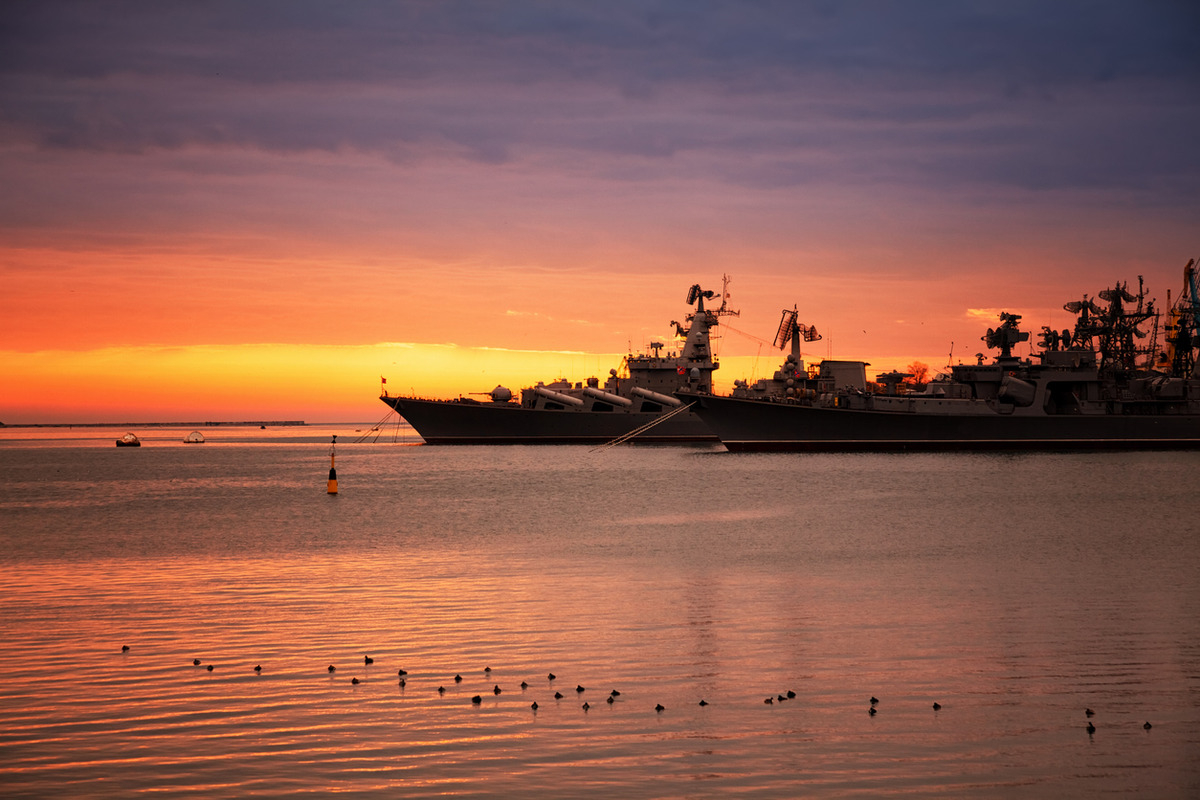The Kremlin will hate to concur with Thursday’s sensational reality of the war with Ukraine. The flagship of Russia’s Black Sea fleet has sunk after it was severely damaged in the latest setback for Moscow’s invasion. Ukrainian officials said their forces hit the vessel with missiles, while Russia acknowledged a fire aboard the Moskva, but said there was no attack. In what appears to be a measure of diplomatic silence, officials of the United States and the Western bloc could not confirm what caused the blaze. The loss of the warship, named after the Russian capital, is a devastating symbolic defeat for Moscow as its troops regroup for a renewed offensive in eastern Ukraine after retreating from much of the north, including the capital. The Russian Defence Ministry said the ship sank in a storm while being towed to a port. Russia had earlier said the flames on the ship, which would typically have 500 sailors on board, forced the entire crew to evacuate. In a subsequent confirmation, it said the blaze had been contained and that the ship would be towed to port with its missile launchers intact. The ship can carry 16 long-range cruise missiles, and its removal from combat reduces Russia’s firepower in the Black Sea. Furthermore, it is a blow to Russia’s international standing in a conflict already widely seen as a historic blunder. Now entering its eighth week, Russia’s invasion has stalled because of resistance from Ukrainian fighters bolstered by weapons and other aid sent by Western nations. The news of the flagship’s damage overshadowed Russian claims of advances in the southern port city of Mariupol, where they have been battling the Ukrainians since the early days of the invasion in some of the heaviest fighting of the war, and at a horrific cost to civilians. Maksym Marchen- ko, the governor of the Odessa region, across the Black Sea to the north-west of Sevastopol, said the Ukrainians struck the ship with two Neptune missiles and caused “serious damage”. Oleksiy Arestovych, an adviser to Ukraine’s President, called it an event of “colossal significance”. Russia’s Defence Ministry said ammunition on board detonated because of a fire, without saying what caused the blaze. It said the “main missile weapons” were not damaged. In addition to the cruise missiles, the warship also had air-defence missiles and other guns. Ukraine has been remarkably intrepid.
The Neptune is an anti-ship missile that was recently developed by Ukraine and is based on an earlier Soviet design. The launchers are mounted on trucks stationed near the coast, and, according to the Washington-based Centre for Strategic and International Studies, they can hit targets up to 175 miles away. That would have put the Moskva within range, based on where the fire began. The United States was not able to confirm Ukraine’s claims of striking the warship, US national security adviser Jake Sullivan said. Still, he called it “a big blow to Russia”. It really is.












